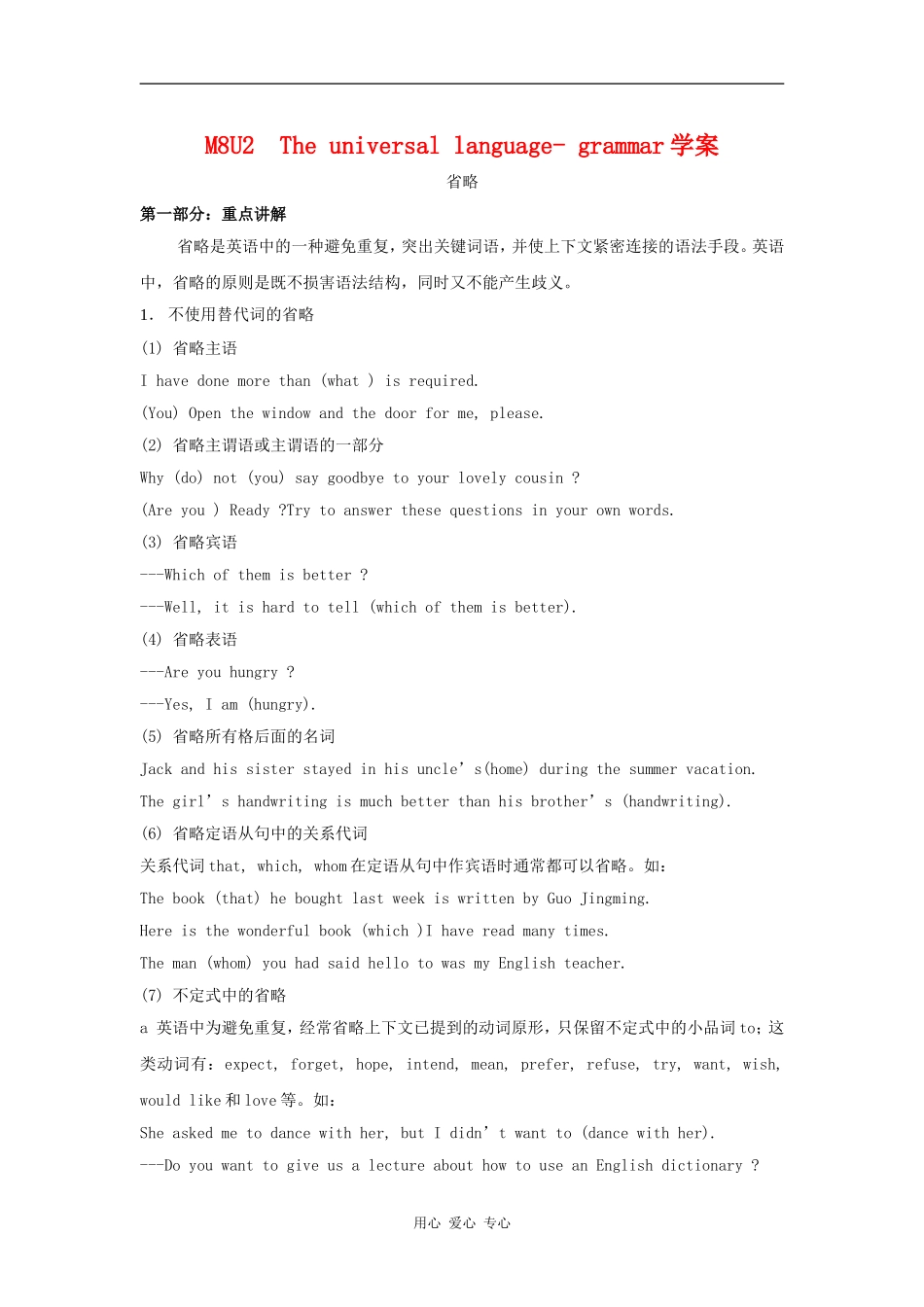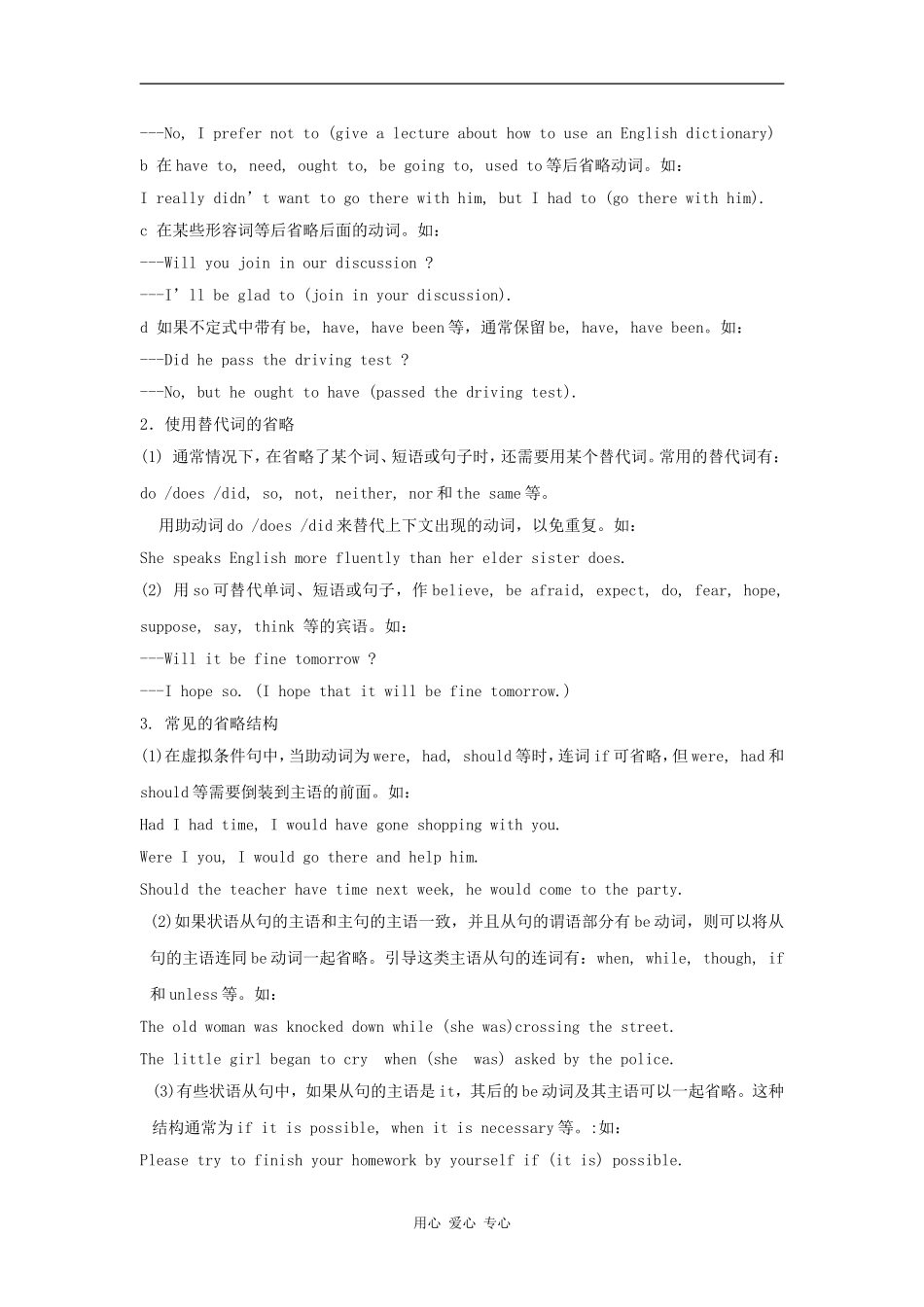M8U2 The universal language- grammar 学案省略第一部分:重点讲解省略是英语中的一种避免重复,突出关键词语,并使上下文紧密连接的语法手段。英语中,省略的原则是既不损害语法结构,同时又不能产生歧义。1. 不使用替代词的省略(1) 省略主语I have done more than (what ) is required.(You) Open the window and the door for me, please.(2) 省略主谓语或主谓语的一部分Why (do) not (you) say goodbye to your lovely cousin ?(Are you ) Ready ?Try to answer these questions in your own words.(3) 省略宾语---Which of them is better ?---Well, it is hard to tell (which of them is better).(4) 省略表语---Are you hungry ?---Yes, I am (hungry).(5) 省略所有格后面的名词Jack and his sister stayed in his uncle’s(home) during the summer vacation.The girl’s handwriting is much better than his brother’s (handwriting).(6) 省略定语从句中的关系代词关系代词 that, which, whom 在定语从句中作宾语时通常都可以省略。如:The book (that) he bought last week is written by Guo Jingming.Here is the wonderful book (which )I have read many times.The man (whom) you had said hello to was my English teacher.(7) 不定式中的省略a 英语中为避免重复,经常省略上下文已提到的动词原形,只保留不定式中的小品词 to;这类动词有:expect, forget, hope, intend, mean, prefer, refuse, try, want, wish, would like 和 love 等。如:She asked me to dance with her, but I didn’t want to (dance with her).---Do you want to give us a lecture about how to use an English dictionary ?用心 爱心 专心---No, I prefer not to (give a lecture about how to use an English dictionary)b 在 have to, need, ought to, be going to, used to 等后省略动词。如:I really didn’t want to go there with him, but I had to (go there with him).c 在某些形容词等后省略后面的动词。如:---Will you join in our discussion ?---I’ll be glad to (join in your di...


